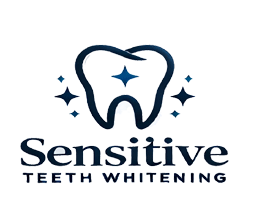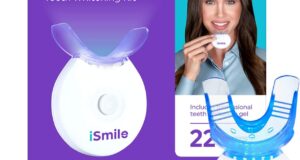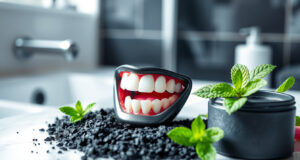Tooth enamel guards your smile. It sits on the outside of your teeth to block decay, sensitivity, and damage from everyday eating and drinking. Once enamel wears down, it cannot grow back. This fact means you must care for it. In this article, we share ways to protect enamel so your teeth stay strong, white, and healthy.
Understanding Tooth Enamel and Its Importance
Enamel is the hardest material in the body. It mainly holds minerals like hydroxyapatite. The enamel covers softer parts such as dentin and pulp. Acid from food and drink can weaken enamel. When enamel thins, teeth can look yellow or uneven because dentin shows through. Care for your enamel keeps both your oral health and your smile safe.
Common Causes of Enamel Erosion
Know what can harm your enamel. Main causes are:
- Acidic foods and drinks: Citrus, soda, wine, and vinegar lower pH and wear enamel.
- Hard brushing: A stiff brush or heavy pressure can scrape away enamel.
- Teeth grinding: This habit wears down teeth without notice.
- Dry mouth: Saliva helps wash away acids and restore enamel. Less saliva can speed up wear.
- Poor oral hygiene: Plaque builds up and brings bacteria that make acid to hurt enamel.
Understanding these points lets you guard your enamel.
Effective Tooth Enamel Protection Tips
Now you know the risks. Try these tips to keep your enamel safe:
1. Pick a Soft Toothbrush and Use Proper Technique
Clean your teeth with a soft brush. Hold it at a 45-degree angle and move in small circles. Brush twice a day for two minutes with a light touch.
2. Use Fluoride Toothpaste and Rinse
Fluoride helps enamel hold its strength. Using fluoride toothpaste and rinse gives weak spots more support.
3. Limit Foods High in Acid and Sugar
Acid and sugar can break down enamel. Cut back on soda, citrus, and candy. Avoid extra snacking that leaves acids on your teeth.
4. Drink Water Often
Water washes away food bits and acids. It also boosts saliva, which protects enamel. Fluoride in water gives extra help.
5. Wait to Brush After Eating
After acid foods or drinks, wait at least 30 minutes before brushing. Brushing too soon may scrape the softened enamel.
6. Talk with Your Dentist About a Mouthguard if You Grind
If you grind your teeth at night, ask your dentist for a mouthguard. A mouthguard stops damage from grinding.
7. Keep Dental Visits Regular
Visits to a dentist help spot problems early. Your dentist may suggest the best care or products for your needs.
Foods That Help Protect Tooth Enamel
Eat these foods to give enamel extra help:
- Dairy like cheese, milk, and yogurt adds calcium and phosphate to restore enamel.
- High-fiber fruits and vegetables, such as apples and carrots, boost saliva.
- Nuts and lean proteins help your overall health.
- Green and black teas carry compounds that slow harmful bacteria.
Common Myths About Tooth Enamel Protection
Some ideas can confuse proper care. See the truth:
- Myth: Whitening toothpaste wears enamel.
Fact: Most whitening products made well work safely when used as directed. - Myth: Brushing hard cleans better.
Fact: A hard brush wears enamel and gums. Gentle cleaning works best. - Myth: Enamel can grow back.
Fact: Enamel does not grow back. Remineralizing repairs early harm but does not form new enamel.
Frequently Asked Questions About Tooth Enamel Protection
Q1: What helps a weak enamel get stronger?
A: Keep your mouth clean with fluoride products, cut back on acid foods, and use fluoride treatments when your dentist advises. These steps help repair enamel.
Q2: Does enamel loss bring sensitivity?
A: Yes. When enamel wears, dentin shows. Dentin has nerve endings that make teeth feel hot, cold, or sweet.
Q3: Do natural ways work for enamel care?
A: Good hygiene and a proper diet do the most work. Some natural methods, like oil pulling, do not have strong proof. It is best to follow advice from a dentist.
Conclusion: Protect Your Tooth Enamel Now
Taking care of enamel keeps your oral health sound and your smile bright. Use gentle brushing, fluoride products, mindful eating, and regular visits to guard your enamel. Do not wait for signs like sensitivity or yellow teeth. Act now for a strong smile, and talk with your dentist for steps that suit you.





